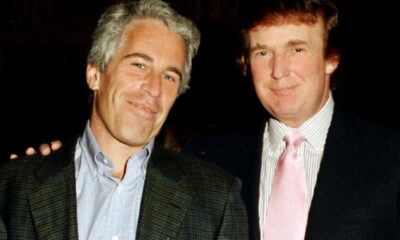Top Stories
Māori Leadership Transition Sparks Debate in Tamaki Makaurau

A significant week for Māori culture and politics unfolded recently, marked by the ceremonial emergence of a new Māori Queen and the tumultuous Tamaki Makaurau by-election. These events have sparked discussions about leadership dynamics and voter engagement within Māori communities.
The ceremonial introduction of the new Māori Queen has captivated many. This event, steeped in tradition, symbolizes the continuity of leadership among the Māori people. Attendees witnessed a young leader poised to take on her role. The customary practice of a year of silence following the passing of a predecessor allows for reflection and planning. Nonetheless, some observers, including journalist Andrew Dickens, suggest this period might inadvertently empower advisors, leaving the new leader less in control during a crucial transition.
In the political arena, the recent by-election for a seat in the House of Representatives exposed a concerning level of voter confusion. Many individuals mistakenly conflated the election with the recent City Council Elections, raising questions about electoral literacy in the region. One television commentator even speculated on whether candidate Oriini Kaipara was running for Mayor, highlighting the disconnect between candidates and the electorate’s understanding of the political landscape.
The campaigns themselves were marked by disarray. Kaipara, a prominent journalist turned politician, faced scrutiny for her party’s historical claims. While she asserted that her party had repealed specific laws, this was factually incorrect, as they had not held government since 2017. Such errors, coupled with moments of hesitation during interviews where she had to consult her phone for policy details, raised doubts about her preparedness for leadership.
Her opponent, Peeni Henare, comes from a Māori background that emphasizes familial lineage and personal history. Widely regarded as a potential future Prime Minister, Henare’s candidacy is viewed by some as a birthright rather than an earned position. His campaign faced challenges as well, particularly regarding his stance on gang-related legislation, which required clarification from Prime Minister Chris Hipkins.
Voter turnout for the by-election was notably low, reflecting a broader sense of disconnection among Māori voters. Many eligible voters appear to feel disenfranchised, which raises significant concerns about representation and engagement in the electoral process. For those on the Māori electoral roll, exercising the right to vote is both a privilege and a responsibility, as emphasized by the historical context of the Treaty of Waitangi.
The discussions surrounding these key events underscore the importance of effective communication and clarity in Māori political representation. As the new Māori Queen steps into her role and the political landscape continues to evolve, the focus remains on engaging the electorate and fostering a renewed sense of responsibility among voters. The future of Māori leadership may depend on how these challenges are navigated in the coming months.
-

 World2 weeks ago
World2 weeks agoPrivate Funeral Held for Dean Field and His Three Children
-

 Top Stories2 weeks ago
Top Stories2 weeks agoFuneral Planned for Field Siblings After Tragic House Fire
-

 Sports3 months ago
Sports3 months agoNetball New Zealand Stands Down Dame Noeline Taurua for Series
-

 Entertainment3 months ago
Entertainment3 months agoTributes Pour In for Lachlan Rofe, Reality Star, Dead at 47
-

 Entertainment2 months ago
Entertainment2 months agoNew ‘Maverick’ Chaser Joins Beat the Chasers Season Finale
-

 Sports3 months ago
Sports3 months agoSilver Ferns Legend Laura Langman Criticizes Team’s Attitude
-

 Sports1 month ago
Sports1 month agoEli Katoa Rushed to Hospital After Sideline Incident During Match
-

 World3 weeks ago
World3 weeks agoInvestigation Underway in Tragic Sanson House Fire Involving Family
-

 Politics2 months ago
Politics2 months agoNetball NZ Calls for Respect Amid Dame Taurua’s Standoff
-

 Top Stories2 weeks ago
Top Stories2 weeks agoShock and Grief Follow Tragic Family Deaths in New Zealand
-

 Entertainment3 months ago
Entertainment3 months agoKhloe Kardashian Embraces Innovative Stem Cell Therapy in Mexico
-

 World4 months ago
World4 months agoPolice Arrest Multiple Individuals During Funeral for Zain Taikato-Fox





















